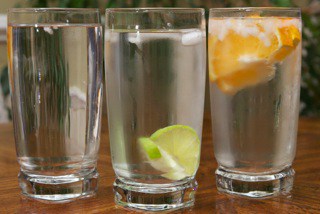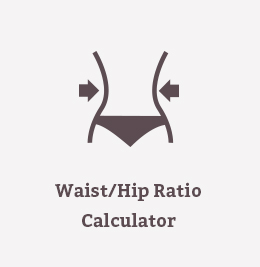There is No More Important Nutrient for Our Bodies Than Water (H2O) 
A man’s body is about 60% water and a woman’s is 50%. Our blood is over 80 percent water. Did you know the human brain is about 75% water?
How Do You Know You Are Getting Enough Water?
A useful rule of thumb is you are probably well hydrated when your urine is light in color and odorless. Taking in enough water can also help prevent constipation (see Importance of Good Digestion).
Water and Your Health
If you are not drinking enough water, you could be suffering from symptoms of dehydration:
- Did you know a headache could be due to dehydration?
- If your skin feels dry and looks crushed, drinking enough water can help both. (Drinking more will not reverse wrinkles, but being dehydrated can make you appear “more wrinkled.”)
- Feeling fatigued, unable to focus or dizzy? All could be because you’re not getting enough H2O.
How Much Water Should You Drink Each Day?
There is no one size fits all answer – it depends on where you live (if it is a warm climate and you sweat a lot, you will need more water), how active you are and your baseline health. The Institute of Medicine (IOM) has determined that in a temperate climate a man should drink 3 liters per day, and a woman 2.2 liters per day. Now, a lot of our foods we eat have water, so not all of your water intake will come from drinking. But trying to get four (4) 8 oz. glasses of water a day, plus the other fluids and foods you eat is a good start. In the cookbook: Everyone Eats, Vol. I, I recommend starting your day with a glass of water.

Adjusting Your Daily Water Requirements
Remember at different times in your life you may need more or less water. You should also ask a health professional, nutritionist or dietitian if you have any questions. Some conditions that can change your water requirements are:
- Pregnancy or breast–feeding
- Heart failure
- Kidney disease
- Training for a marathon
Too Much or Too Little
As discussed above (See Water and Your Health), there are side effects of dehydration. However, there are also side effects of too much water, or overhydration, that can be just as damaging to your health. Ask a healthcare professional if you are not sure.
For More Information
You can learn more about the importance of water and meeting your daily fluid needs at the CDC’s web page on water.








